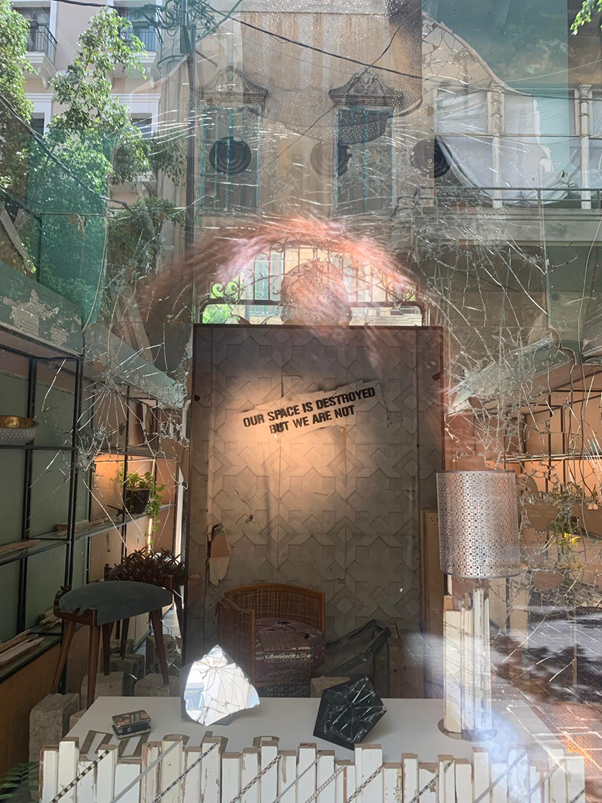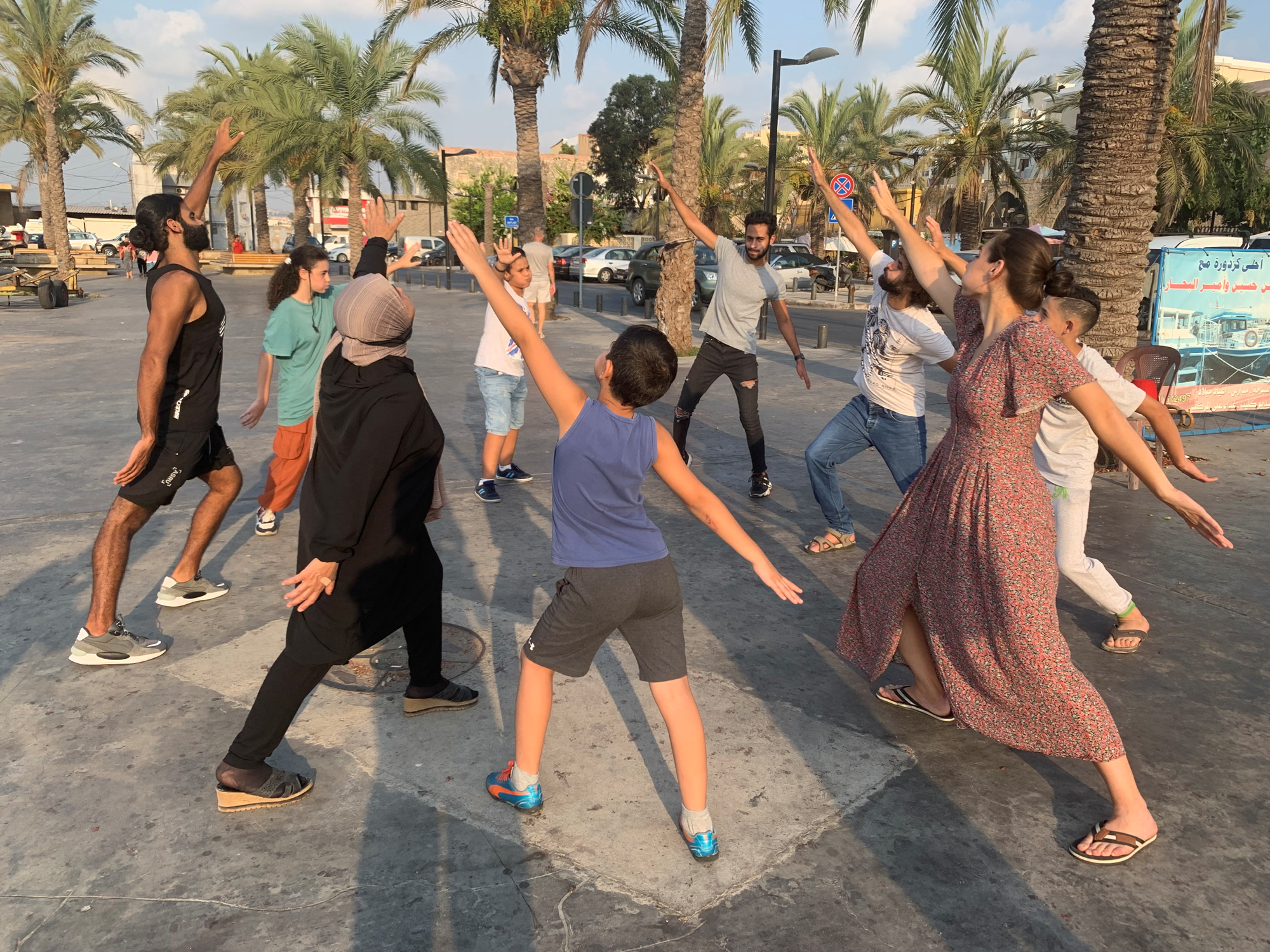We are sitting in the unused bar of Cinema Rivoli in Sour with the Tiro team, sweat dripping down our backs from the scorching heat. Three young girls enter the cinema for the film screening scheduled at 18.00. Kassem Istanbouli, founder of Tiro Association for Arts, tells them it is postponed one hour because of the electricity cuts.
They come back at 19.00, but this time they are told it is cancelled. The same thing had happened the previous day. “It is becoming very difficult for us to do our work. Last week we had a film festival, but half way through one of the films the electricity went off, so everybody had to go home. We need electricity and internet to do our work, especially when it is this hot and people can’t gather outside”, Kassem tells us.
Street theatre
The following day, instead of postponing and cancelling events, Kassem decides to hold a theatre workshop at the port in Sour in the late afternoon when the sun’s heat has softened. Lebanese from other parts of the country gather in Sour on weekends to enjoy the beach, and to escape some of the dark realities Lebanon is currently going through. While people walk by, we see how the street theatre brings life and energy to the port – the Tiro team perform political sketches about the current situation, and small crowds gather to watch.
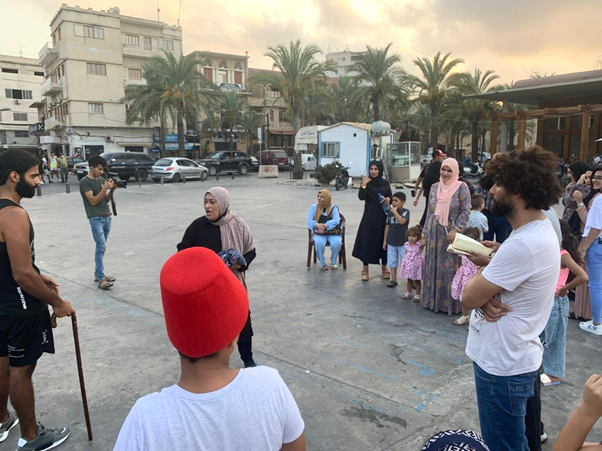
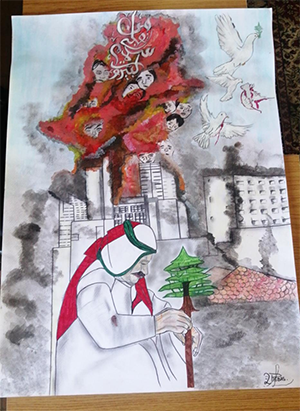
In Beqaa, our partner Peace of Art is using an old school building to create a free, open space for young people in the region to come together. Beqaa is an isolated region in Lebanon, and we can see how the economic crisis is affecting people here even more so than in more populated areas. Vera organises art workshops as a means for the youth to freely express themselves together, in an increasingly divided society. One young girl named Ribas, made the painting below. It is dedicated to the Beirut explosion. The writing in the smoke says: “From my heart, peace to Beirut”. This is a quote from a song by Fairuz (Fairuz is the national singer of Lebanon, beloved by all). Ribas wanted to express that although Beirut (and Lebanon as a whole) are hurt and injured, the doves show that there is still hope.
Calligraffiti
In Beirut, art in public spaces is being used for more political means. The city has always been painted in creativity; an open air art gallery full of calligraffiti, paintings and slogans that speak to the people. Every time we visit, there is a new piece of art to discover down a small side street, on an old ruin from the civil war, or in a corner yet to be found.
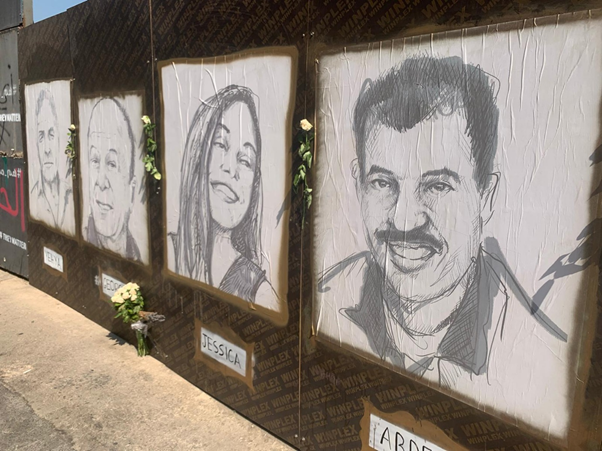
Around the 4th of August, artistry sprung up all around the city condemning the government, mourning the victims and calling for justice. One artist, Brady Black, painted the portraits of all the victims of the blast, lined up next to each other near Martyrs Square. A powerful message that all their lives matter and need remembering. Another organisation hung huge banners on the buildings where people were killed, a clear call for justice. Another artist clearly criticises the government with messages spread over buildings next to the port stating: ‘4 MILLION LEBANESE MURDERED, INJURED, AFFLICTED, STOLEN, KIDNAPPED…. YOU’VE LOST YOUR IMMUNITY’.
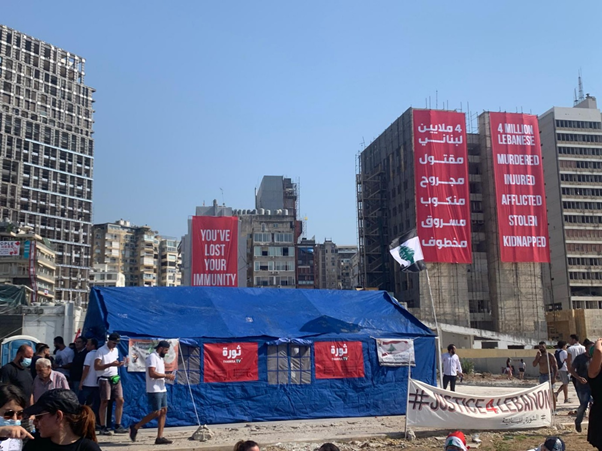
Hope
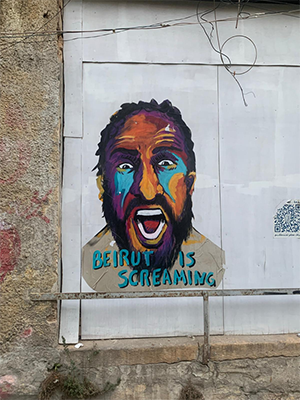
Lebanon has changed considerably since we last visited 1.5 years ago. The week we were there was particularly eventful: violent clashes between rival political groups, the 4th August commemoration and protests, wildfires and rocket fires and tensions between Israel and Lebanon. All these incidents are against the backdrop of a worsening economic crisis, fuel, medicine, food and electricity shortages, and Covid-19. People are busy just surviving, when the electricity goes out you’re busy getting the light back on. When a family member is sick, it takes two days to find panadol in the pharmacy. When you need to drive somewhere, you’ll wait hours queuing for gas. This leaves little room to think about political and social change. Yet, across Lebanon creative initiatives are using culture and arts to create and expand this space to think beyond the current crises and to bring an essence of hope in an otherwise demoralising context.
